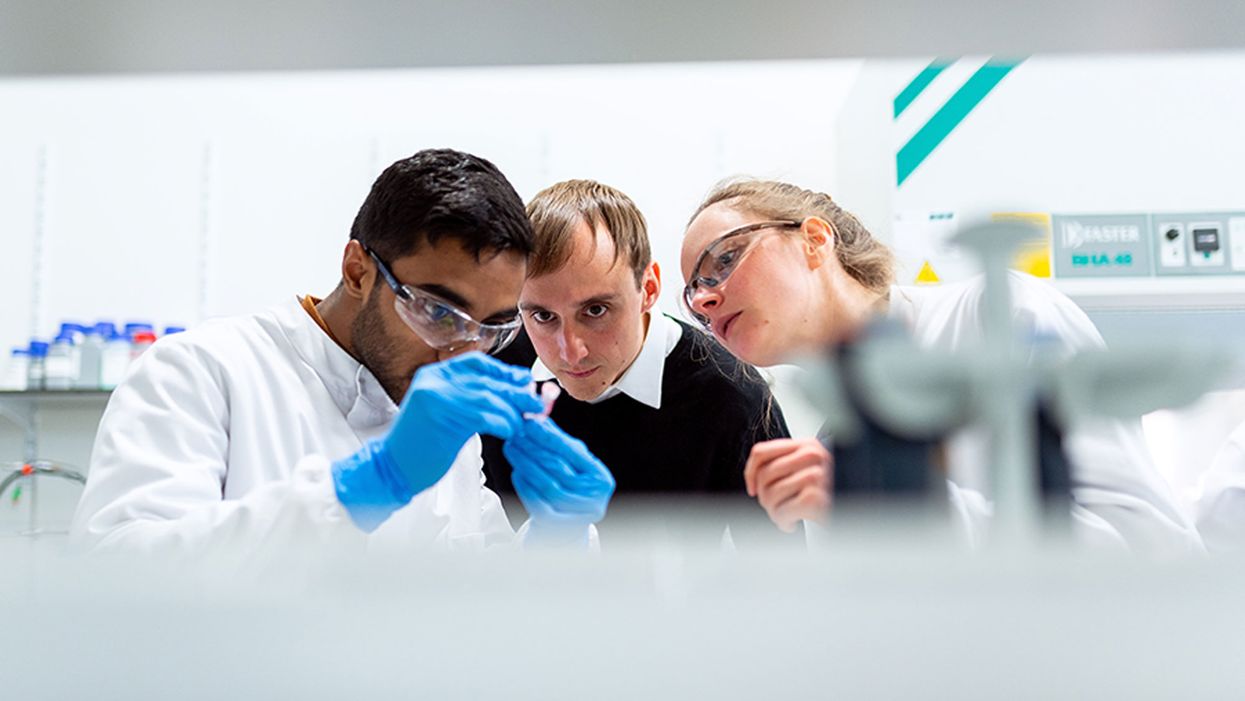Democratize the White Coat by Honoring Black, Indigenous, and People of Color in Science
Celebrating BIPOC's achievements in science are a strong first step to make science a guiding force for all.
This article is part of the magazine, "The Future of Science In America: The Election Issue," co-published by LeapsMag, the Aspen Institute Science & Society Program, and GOOD.
Journalists, educators, and curators have responded to Black Lives Matter by highlighting the history and achievements of Black Americans in a variety of fields, including science. The movement has also sparked important demands to address longstanding scientific inequities such as lack of access to quality healthcare and the disproportionate impact of climate change and environmental pollution on neighborhoods of Black, Indigenous, and people of color (BIPOC). Making such improvements requires bringing BIPOC into science and into positions of leadership in laboratories, graduate schools, medical practices, and clinical trials. The moment is right to challenge scientific gatekeepers to respond to Black Lives Matter by widening the pathways that determine who becomes a scientist, a researcher, or a clinician.
The scientific workforce has long lacked diversity, which in turn discourages Black people from pursuing such careers. Causes include a dearth of mentors and role models, preconceived notions that science is exclusive to white males, and subpar STEM education. Across race, gender, class, ability, and all other dimensions that inform how an individual navigates the world, from the familial to the global level, seeing role models who resemble you impacts what you strive for and believe possible. As Marian Wright Edelman stated, "You can't be what you can't see"—a truth with ever-increasing resonance since the U.S. is projected to be minority-white by 2045.
Black Americans have paved the way for the nation to lead in science and technology, despite marginalization and exclusion from textbooks. Physicist Dr. Shirley Ann Jackson invented the technology behind Caller I.D. and Call Waiting. Otis Boykin's patents made televisions and radios what they are today. Thanks to the 2017 movie Hidden Figures, millions of Americans know about Katherine Johnson, the NASA mathematician whose calculations were essential to the successful trajectory of the Apollo 11 mission.
However, highlighting past role models who were Black achievers is not enough and paints too static a picture—especially when examples of transformative work by contemporary BIPOC scientists serving BIPOC communities abound. Cognitive neuroscientist Dr. Jonathan Jackson founded the Community Access, Recruitment, & Engagement (CARE) Research Center with the goal to break down barriers so that people of color participate in clinical trials. Geneticist Dr. Nanibaa' Garrison's research creates ethical frameworks to overcome genomic injustices so Indigenous populations can benefit from genetic research. Computer scientists Joy Buolamwini and Dr. Timnit Gebru's research drew attention to reinforced racial bias in artificial intelligence, leading Microsoft, Amazon, and IBM this summer to halt use of their facial recognition software.
"Integration does not mean equality if the space being integrated isn't exuberantly down for the cause."
In order to honor concretely the ubiquitous public statements and commitments to justice and equity that flooded everyone's inboxes in early June, we must include traditionally underrepresented voices in all phases of science and its applications. For guidance, we would benefit from listening to activists leading, for example, climate marches and protests over toxic water. Indeed, science is at the core of the issues for which young BIPOC are mobilizing. We need to sit down with these individuals to gain their input on how the narratives, practices, and opportunities in science should change. As Zeena Abdulkarim, a youth climate change organizer working with Zero Hour, explains: "Minority communities are exposed to what the privileged and people in power are not; therefore these communities know the right steps to take in the change we need for the kickstart of true social and environmental justice."
Two other Black youth, for example, used the platform of the laboratory while in high school to mobilize for change. Elle Lanair Lett, now specializing in epidemiology as an M.D.-Ph.D. student in Philadelphia, was prompted by family prevalence of diabetes to research the genetics of pancreatic cells. Dr. Otana Jakpor, now an ophthalmology resident in Michigan, was motivated by the pollution in her hometown of Riverside, California, to research the pulmonary effects of indoor air purifiers, with findings that influenced California ozone regulations. Both became finalists in a national science fair, propelling them on paths toward science careers. These young scientists demonstrate how people's communities and lived experiences can shape trajectories of science research, which, in turn, determines which visions for society are materialized and popularized.
We can also gain insight from another childhood science fair veteran, self-proclaimed "Black STEMinist" Augusta Uwamanzu-Nna, who graduated from college in May and works as a bioengineer. In her view, "we need to shift the burden away from Black people and onto individuals who have contributed to our current reality—fundamentally requiring understanding, open-mindedness, a lack of bias, cultural competency, anti-racism, anti-homophobia, and many, many other things."
Celebrating BIPOC's accomplishments in science and cultivating new leadership today are strong first steps to make science a guiding force for all. Ms. Uwamanzu-Nna keenly reminds us, "Integration does not mean equality if the space being integrated isn't exuberantly down for the cause." Indeed, educational institutions, scientific companies, and medical centers must acknowledge and embrace their role in democratizing science in order for society to realize racial and scientific justice.
[Editor's Note: To read other articles in this special magazine issue, visit the beautifully designed e-reader version.]
